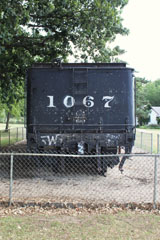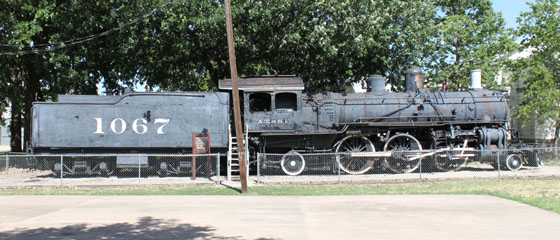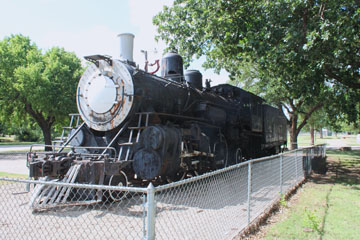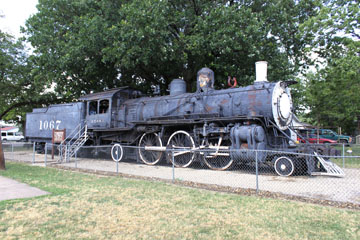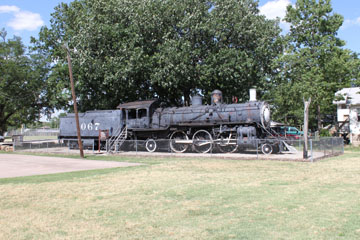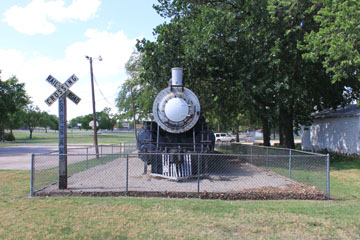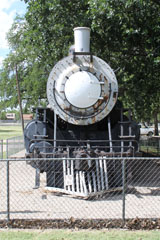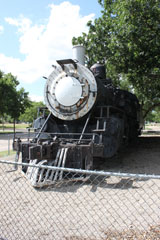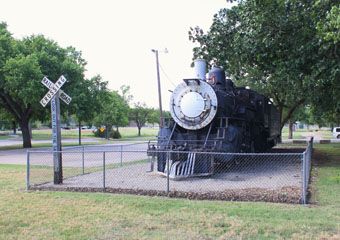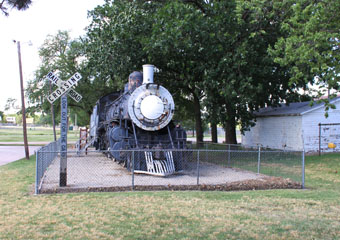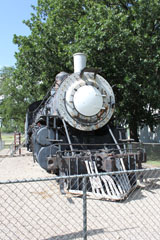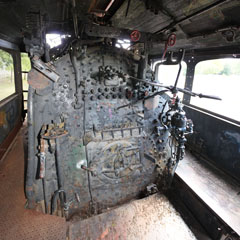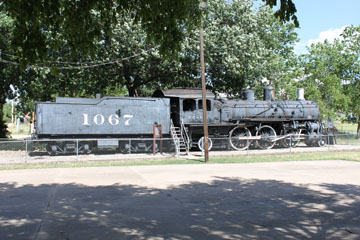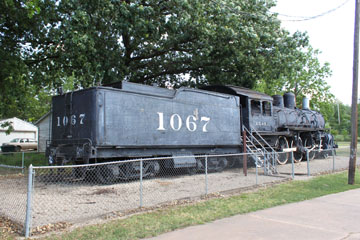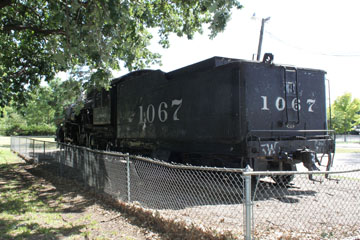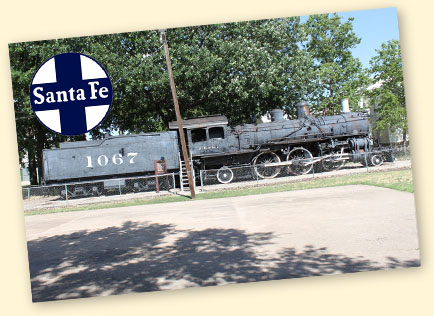

Outshopped in 1902, #1067 is one of one hundred and
three 1050 Class Prairie type (2-6-2) locomotive, built
for the AT&SF by Baldwin between 1902 and 1903
(#1050-#1152). As built, it was a four cylinder Vauclain compound with 17" x 28" high pressure and 28" x 28" low pressure cylinders. The engine consisted of two pistons mounted in line and moving in parallel to drive a common crosshead, one on each side of the locomotive. The valve was on the inside, controlled by Stephenson valve gear.
The main advantage claimed for compounding was lower fuel and water consumption, but the Vauclain arrangement produced uneven forces and excess wear at the crosshead, which increased maintenance costs and largely offset any fuel economies. The complex valve assembly and the starter valve, which allowed admission of high pressure steam directly to the low pressure cylinder, also increased maintenance costs.
By the turn of the century, many US railroads were turning away from compounds and converting those they owned to single-expansion locomotives. The AT&SF
subsequently simplified all its 1050s between 1910 and 1922 with 23½" x 28" cylinders.
Right, #1067's backhead.
It was donated to the City of Wellington in 1956 and is on display in Sellers Park. As the name suggested, the 2-6-2 type was designed to work on relatively flat roads and the AT&SF was one of the main purchasers, buying two hundred and thirty-three of the type between 1901 and 1903. They were not popular with other Clas I railroads, however, and only fifteen hundred were built in total, mainly in the early part of the century.
At 210,190 lbs, 141,690 lbs on their drivers, the simplified 1050s weighed 20,190 lbs more than the as-built compounds. The tender weighs 112,610 lbs light with a capacity of 7,000 gallons of water and 2,350 gallons of oil.
#1067's grate is 55.3 sq ft and the firebox is 195 sq ft. An oil burner with a total heating surface of 3,738 sq ft, it operated at a boiler pressure of 200 psi delivering 38,097 lbs tractive effort. The 69" drivers were designed for general use and the additional weight increased tractive effort from the as-built compounds' 29,134 lbs.
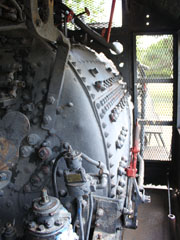
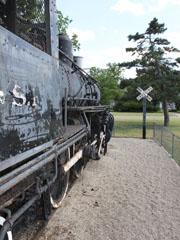
A number of AT&SF Prairie locomotives have survived and several are dotted about the South-West.
You can see other survivors on the ATSF #1024, ATSF #1050, ATSF #1079, ATSF #1129, ATSF #1139, ATSF #1819 and ATSF #1880 pages of this website.


